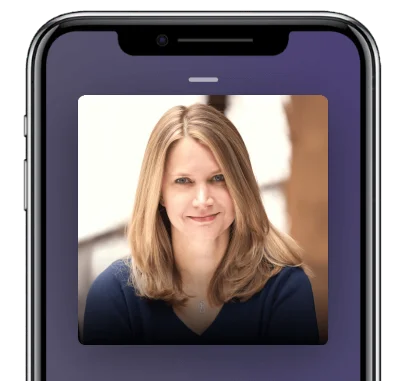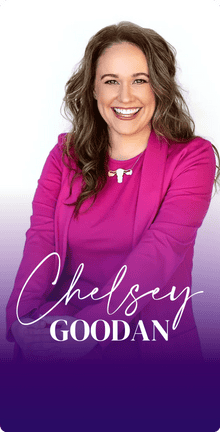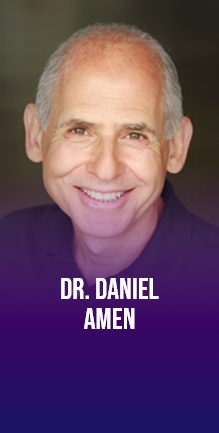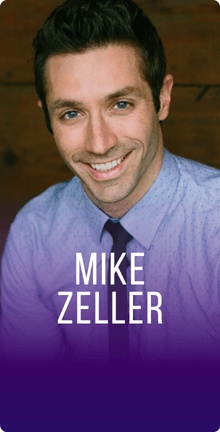In this Episode
- [01:33]Why did Andrea write her new book and bare her soul in this way? She answers, then discusses whether anxiety disorders are a growing epidemic.
- [05:08]Andrea talks about whether some people might have anxiety disorders without even being aware of it.
- [07:08]For listeners who may not understand what a panic attack feels like, Andrea describes the experience.
- [10:48]Andrea shares what it felt like to go through the process of trying to figure out what was wrong with her.
- [13:40]Treatment involves amassing new learning that overrides the fears that you have, Andrea explains. She and Stephan then discuss other treatment strategies.
- [17:34]Andrea talks more about meditation and yoga, and the tools that she uses to practice both.
- [23:01]Stephan points out that there are three fear responses: fight, flight, or freeze.
- [26:06]Andrea explores some of the exciting developments happening in terms of treatments for underlying brain dysfunctions.
- [29:39]Has Andrea tried any apps for synchronizing her breathing to her heart rate variability?
- [32:05]We hear about Stephan’s experience working with Dr. Daniel Amen.
- [34:09]Andrea talks about whether she has tried eye tracking.
- [36:39]It’s good to start with evidence-based, peer-reviewed, research-tested methodologies, and then branch out from there.
- [38:07]Andrea explores relapses, which can be caused by different things depending on the person, she explains.
- [41:10]We learn about whether girls are more likely to suffer trauma while growing up than boys.
- [45:04]Stephan talks about the dangers of overly accommodating your kids as they’re growing up in terms of a Kabbalistic concept.
- [47:44]Andrea describes what ACEs is and how it potentially plays a role in a child’s development of an anxiety disorder over their lifetime.
- [52:33]Andrea lists some places where listeners can find her or buy her book.
Thanks for having me.
Let’s talk about your new book. We’ll start by why did you write this book, On Edge, and bare your soul in such a way?
I’ve been balling over doing this for many years now and partly because I had such a long journey to my own diagnosis and I knew I wanted to be able to provide empathy, insight, understanding, and information to the 40 million Americans actually that each have an anxiety disorder and to the people who care about them because for those people who don’t necessarily struggle with serious anxiety can be baffling. Also, as a long-time health journalist, I was realizing that there was a really interesting story here, too. This is an amazingly fruitful time in anxiety research. Advances in neuroscience, neuroimaging, and genetics are starting to unravel some of the mysteries of the anxious brain. New treatments are on the horizon and even scientists are looking at the ability to prevent anxiety disorders and kids as young as two. Both as an anxiety sufferer and wanting to tell people to share my own story, so people who also struggle with anxiety could relate to it and maybe see themselves in it. Also, just convey this really exciting information I was out there as a journalist. My goal was two-fold.
Got it. Would you say that anxiety disorder is becoming more of an epidemic?
You know it’s interesting. There does seem to be some evidence that the rates of anxiety disorders—troubled with serious anxiety—the rates are increasing among young people particularly college students. The latest data I’ve seen has shown that in the last year, 21% of college students have been either diagnosed with or treated for anxiety problems in the last year. That’s up from about 10% in 2008. There’s clearly something going on here. From talking to psychologists and college mental health centers, also student activists, mental health advocates, there’s a lot of hypothesis about why this might be happening and people point to everything from worries about the economy to increased competition for grades and internships. The huge amount of student debt that kids are taking on these days, just the rising cost of college tuition to the impact of social media.
Also, parenting practices, what we know as helicopter parenting. This style of parenting where people maybe less likely to give their kids independence or allow them to fail, so when they get to college, they’re not necessarily prepared. There’s a lot of factors that might be contributing to this. But also, there are some positive things that are happening that may be contributing to this, too. From doing a lot of reporting on college campuses, I’ve seen such a dramatic shift and the conversation around mental health. College counseling centers are much more visible now. They’re not necessarily cloistered away from the health services. They’re really out on campus and making themselves approachable. There’s just less stigma around having a mental health issue or seeking help for one among young people. That also probably is just more students maybe more comfortable actually getting treatment and asking for help.
Would you say that some people might not even be aware that they have an anxiety disorder that they might not even know what an anxiety attack is, but they’re experiencing them?
Oh, sure. Anxiety disorders are still woefully underdiagnosed and undertreated. Less than 40% of people who have an anxiety disorder actually get treatment for one and people tend to wait a very long time. The average wait for someone with panic disorder, which was actually my primary diagnosis, which is characterized by intense physical attacks of heart racing, having difficulty breathing, and feeling like you’re dying is 10 years. Someone with generalized anxiety disorder it’s nine years. For someone with that is characterized by a lot of worries, what-if-what-if, a constant refrain that someone that has generalized anxiety to someone with has social anxiety, the average wait to actually seek help is 16 years. There’s certainly a lot of people that are suffering that are not getting treatment. Also, anxiety can present itself in many different ways, especially in kids, it may present as constant stomach aches or headaches. A lot of people with a lot of issues with anxiety as adults, a lot of it is muscle tension and difficulty sleeping. It could be very physical. You may not think that it’s anxiety. It’s a shapeshifter. It could be easy to mistake it for something else.
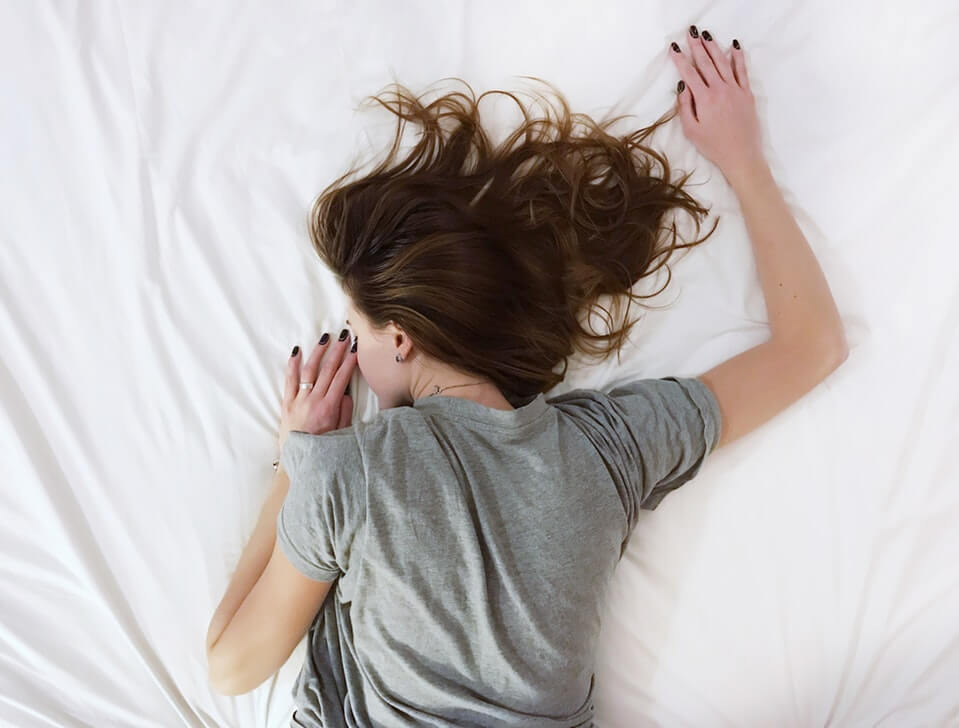
For somebody who’s not aware of what it’s like to have a panic attack or maybe they have had one, they just weren’t able to recognize it as one, or they were told by a loved one, “I just had a panic attack,” and you just can’t relate to it. You don’t know what that meant for that person. I’ve had loved ones tell me that they had panic attacks and I don’t get what that’s like for what they experience. It just doesn’t compute for me. I can empathize and sympathize, but I can’t really get what they went through, so maybe you could describe that process of somebody who’s experienced it firsthand.
Sure. For me actually, there was a pivotal moment when anxiety became an occupying force in my life. I was a sophomore at the University of Michigan and it was an ordinary day. I was actually in the basement of some academic building preparing to register for classes and I felt totally fine. Then a second later I didn’t. All of a sudden, my heart rate shot up, I felt short of breath, and I broke out in a sweat. I had these strange visual changes. The words I was reading started to dip and buckle, and I had these fuzzy gray blotches that appeared before my eyes. I was gripped with this overwhelming terror that I was about to die. I thought I was having a medical emergency, that was a panic attack. A panic attack is these abrupt physical symptoms and also this feeling that you’re going to die or go crazy. A panic attack normally peaks and abates in about 10 minutes, so they’re very intense and usually quite short-lived. But I can tell you from personal experience that episode that I had in college, it ushered in what to me felt like a month-long panic attack.
Yes, my fear had peaks and valleys, but it was really always there. For me, it ushered in this medical odyssey to get a correct diagnosis. I actually ended up seeing about a dozen doctors over the next year trying to figure out what was wrong with me. I had multiple blood tests, EKGs, echocardiograms of my heart, I had a CAT scan and MRI of my brain. Doctors speculated that I had everything from multiple sclerosis to chronic fatigue syndrome to a brain tumor. Finally, it was only about a year later that I ended up in the office of a psychiatrist and I said, “You have to help me. I can’t live like this.” What can happen with anxiety in general, but especially for people who are prone to panic attacks is my world is shrinking. I started to avoid places that I’d had panic attacks, where I’d had serious anxiety symptoms– parties, movie theaters–to a point where my world really had been reduced to my room, at school, and a couple of classes that I was able to drive myself to.
Having this constant anxiety churning at your body is also exhausting. I would collapse into bed at seven, eight o’clock I had done that since I was in elementary school. Finally, when I was desperate and asking the psychiatrist for help, she put me on Prozac and the SSRI, the antidepressant medication or she can send me to the anxiety disorder clinic at the University of Michigan hospital. That was actually the first time that anyone said the word anxiety to me. I would like to think that that wouldn’t happen now, that there’s more awareness among the medical community, or that I would just Google the symptoms and I would have figured out what I had myself. I would have self-diagnosed. But as I mentioned before, still even with the increased awareness that we have today, anxiety disorder is still woefully undertreated and a lot of people that need help aren’t getting it.
That must have been so terrifying to go through this roller coaster of all these different tests and not knowing if you had some sort of brain disease or some sort of whatever. All these different tests that you have to go through, see what you might have, that must have further exacerbated things and increased your anxiety levels, right?
Oh, yeah definitely. Also, it made me feel just so out of control. If there’s nothing wrong with me physically, then I must be losing my mind. I had been told these stories of my grandmother who was diagnosed with schizophrenia actually in the late 50s and had spent several years in a psychiatric hospital in Wisconsin. That was also in the back of my mind too. It was like the first step in some real psychosis, and I was very worried about that as well. If they couldn’t figure out something was wrong with me, then I must be crazy. So yeah, it was terrifying. Finally, having a diagnosis and also knowing that there were treatments, that someone could help me was tremendous to get that information. Like I said, the problem is that anxiety feeds on itself. The process of my recovery was pretty painfully slow because what happens is when you start avoiding the things that make you anxious, that actually reinforces the anxiety. I had a lot of things that I had to unlearn and I got right into cognitive behavioral therapy, which is one of the most evidence-based non-drug treatments for anxiety disorders.
The main component of it is exposure and basically what you do is gradually and systematically expose yourself to the very situations that you are afraid of. It’s really not very fun. It can be quite painful but for me, since I was having all these physical fears, I was having a lot of fears about my health and that something was really wrong with me, one of the things that will make me nervous is when my heart rate kicked up. I would be convinced I was going to drop dead of a heart attack. My therapist had me run up a flight of stairs and get my heart rate up, then run up two flights of stairs, and then three flights of stairs. The whole process of that was to build evidence that terrible thing that I predicted was going to happen didn’t happen. All those places and things I avoided, standing in line, that was my assignment. My homework was to go find all these lines to stand in. I would go and I would stand in line at a coffee shop and I’d get almost to the front line and then I would go back and stand in the same line again. It must have looked funny, but that was my homework to combat those fears that I had. That’s what finally brought me some relief in college, it was doing that kind of cognitive-behavioral therapy.
It sounds like almost stress inoculation like, “Okay run up another flight of stairs, see if you drop dead, if your worst fear comes to pass or not.” I wouldn’t call it waterboarding, but it’s something close.
Well, basically what you’re doing is you’re actually amassing new learning. It overrides the fears that you have. Another main component beyond exposure is something called cognitive restructuring, which basically means you take what your fear and you break it down, like “What is the evidence that I have for to say my fear of it, I was going to drop out of heart attack, what’s my evidence that combats that while I was only 20 years old, I had been checked out fully, the likelihood was really quite low. That’s another component that is often used in cognitive behavioral therapy. It’s to look at what’s the evidence that your worst fear would come true.
My understanding of cognitive-behavioral therapy is that you take some activating event and you then make up some story or have some belief about that, but then it’s autopilot, it’s automatic. Then from there, you make a decision or some action comes out of that. Something triggers you, you automatically derive some story or belief around what that means and then you take some action. But if you pause and re-evaluate/re-experience that activating event, like, “Okay, wait a second. Maybe that person didn’t actually diss me or show their disdain or dislike for me, maybe they were just having a bad day or maybe there is something going on for them that it was about that and not about me.”
There’s all sorts of different strategies that can be used in that larger umbrella. There’s also another very good evidence-based treatment. There is also acceptance and commitment therapy which is a derivative of cognitive-behavioral therapy, but it also focuses on mindfulness. If you think about it, being in the present moment is antithetical to anxiety. Anxiety is all about the catastrophe around the corner, what could happen in the future. If you’re in the present moment, that’s the antidote to anxiety. Acceptance and commitment therapy and there’s all sorts of other mindfulness practices. There’s a lot of really growing body of research showing that meditation and mindfulness really can alleviate anxiety symptoms, too. That’s something that I try to incorporate into my life. Moreso, yoga has actually been my entree to that because I’m not a very good meditator, people tell me, “You can’t be bad at meditation,” but still I find the activity of yoga help focuses my mind.
I just had a conversation with Todd Herman for another episode of the show and he was saying that daily meditation is critical to being in a flow state, that is the number one thing. So if you want to be productive, effective, centered, and able to work deeply, you must meditate, even if it’s just for a couple of minutes. He recommended 20 minutes per day or even two 20-minute sessions per day. What you’re saying is that, “Ah, I can’t meditate,” there’s got to be a way that you can meditate that feels comfortable and feels right to you. He recommended, for example, open eye meditation, so you don’t get lost in your thoughts or trying to quiet your mind when all of the other senses that you normally ignore suddenly light up when you close your eyes. You just keep your eyes open and focus something like if you’re a golfer, have a golf ball in front of you. What do you think about maybe giving that another try and doing some different kind of meditation?
Yeah, I’ve actually been doing guided meditation using an app because I was freestyling it for a while. That’s the next stuff that I’m trying.
What app are you using?
I’m using 10% Happier. I just started it. I am on day three. I have to come back and let you know how it goes.
Yes, I would love to hear that. Very cool. How long have you been doing yoga?
I’ve been doing yoga for probably 20 years, actually. What I found is actually that’s allowed me to incorporate in my life more easily is, it can be hard to drag myself to an hour-and-a-half, even two-hour-long class. I use YogaGlo, which is an online, $18 a month, or something, and you can do a 15-minute class to 20-minute class, so there’s really no excuse for me to say that I don’t have enough time. I can always find 15 minutes in a day to do a bit of that. That I find has been really, really helpful. I’ve talked to a lot of different of people about anything that can ground me in the present moment, even beyond yoga and the sort of sitting meditation can be helpful in dealing with anxiety.
For me, I found actually baking is one of my favorite soothing activities. I found there’s something about the alchemy and the sure thing of, “I know that if I put butter, flour, sugar, and a couple of other ingredients, I will get chocolate chip cookies.” There’s something about that certainty that is very soothing to me and also, the tactile nature of it really allows me to settle in and focus in the present moment, and then of course the accolades from family and friends, I’ve never felt closer to being a celebrity than when I brought a still steaming blueberry pie onto a New York City subway. I was affectionately heckled by many of my fellow subway goers. I highly recommend that that is also a nice boost as well. I talk to other people.
One young woman I talked to said that she wakes up a half-hour early and does her makeup in the morning and that’s something that she finds soothing. I’m sure I would just poke myself in the eye with an eye pencil, but for her, that’s something that helps. Listening to music, taking a walk, and actually, this is something that there is good research on like so we can begin to take a walk in a park, which is something that I try to make the time to at least do a couple of times a week. These researchers at Stanford actually had two groups of people take a walk and one group took a 50-minute walk alongside a busy street and the other took a walk in a grassy park. It’s not that surprising, but the people who took a walk in the grassy park had lower levels of anxiety after they had done that, so that’s something that I also practice.
But also just all of these kind of boring adult things that we’re all supposed to do and we know we’re supposed to do are even more critical for people that struggle with anxiety. Getting sufficient sleep, eating well, lowering stress levels, the sleep part is really, really important. The brains of people who struggle with anxiety, there has been a lot of neuro-imaging studies and a lot of parts in the brain has sort of been implicated in excessive anxiety, but the two that really seem to be critical are the amygdala, which has been called the fear center. Anxiety is a normal human emotion that certain amount of it is a good thing. It motivates us to study for a test, prepare for retirement, go to the doctor for feeling off, but too much anxiety, if excessive, when it starts to basically impair your life when it prevents you from doing the things that you want to do when you want to do them, that’s when it becomes a disorder.
But it’s based on this threat detection system that most organisms have just to keep us alive, this fight or flight response, the seat of that is the amygdala and it tends to be overactive in people that deal with anxiety. If the amygdala is the gas pedal for anxiety, the prefrontal cortex is the brakes, and that tends to be underactive in people with anxiety. What they found, actually, people that don’t have issues with anxiety, when they’re sleep-deprived, that actually tends to weaken the connection between the amygdala and the prefrontal cortex. If you’ve already got an overactive amygdala, it’s like putting lighter fluid on that whole process and putting more fuel to that fire. There’s been a lot of research showing that insufficient sleep is associated with more chronic and serious anxiety and can actually–a bout of insomnia is often a red flag for an episode of anxiety or depression.
Yeah. Insufficient sleep is just so dangerous and deleterious to our health. It shortens our lifespan. It opens us up to diseases like Alzheimer’s for example.
Heart disease, diabetes. Yeah, there are all sorts of reasons why. Here’s another one to add to it. It’s a knockout for anxiety levels as well.
You also said the amygdala is about fight or flight. I learned that there’s actually three responses. It’s not just fight or flight. It’s also fight or flight or freeze. Somebody who’s quite familiar with brain science told me just in a friendly conversation about this and that she thought was more stuck on freeze than anything, that gave me pause, certainly. I never forgot it. That was years ago. But I’m just curious about the freeze mode where, let’s say you go into a forest and there’s a deer, it stops, it’s terrified, and so it doesn’t move. It pretends that it’s not there and some people, that’s how they respond to the world.
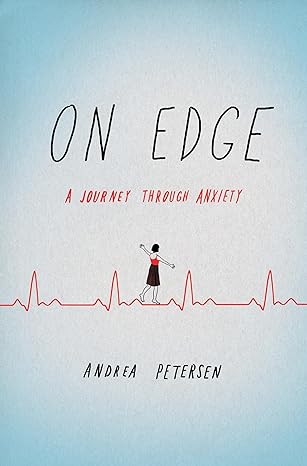
It is a defensive response. If something dangerous is in your environment, you can fight it, you can run away from it, or you can freeze and hopefully it will not realize that you’re there and it will go away. You can see how that would be very advantageous if you’re dealing with a predator. A lot of anxiety research is done with rodents and rodents actually have a whole-body freezing response at a startle and that is something that is often measured when people are looking at anxiety. It’s something that’s very well-documented in the research literature.
You were going to say something, and then I interrupted.
I also wanted to make sure that there are other good treatments for anxiety as well. The main treatment for anxiety is of course medication, in particular, SSRI medication. I’ve actually taken various SSRIs over the years and still take 5 mg Lexapro now and I found them to be personally helpful, but the research literature actually found that these medications don’t tend to be—in controlled studies—much more efficacious than a placebo. It’s a little bit baffling even though obviously clinically people find that they do work. There’s some evidence that they may actually be better at preventing relapse than in treating an acute disease, but one-third of people who do take these medications are actually not helped by them at all–that take them for anxiety.
There is a real need for new treatments and even with cognitive behavioral therapy, which I’ve personally benefited from it. I’ve done several rounds. Relapse is a fact of life with anxiety disorders and I’ve certainly had several relapses over the years and I know that when my anxiety really starts to seize up—I can tell it’s starting to interfere with my life—that’s a sign for me to go to what I found works for me and cognitive behavioral therapy, a low dose of antidepressant, and then I do all of these other practices to make sure that it’s trying to prevent a relapse and sort of help keep me on an even keel. There are some really exciting developments happening now. Scientists are trying to develop new treatments that aims to target some of these underlying brain dysfunctions that are found in anxiety disorders, or at least some other cognitive processes that seem to fuel them. Anxious people have generally what’s known as an attention bias to threat, which is actually we simply see more peril in the world.
If my husband is being quiet, my first thought isn’t that, “Oh, he’s probably tired.” I think he’s mad at me. They found actually that they can measure this attention bias by showing people an angry face and a neutral face. People with anxiety tends to focus more quickly on the angry face. What researchers have done is they actually created this attention bias modification which often uses a simple computer game to try to retrain the person to attend more to the neutral things in their environment instead of the things that are threatening, it’s actually found to help ease anxiety symptoms. That’s one interesting avenue of discovery. There’s really interesting search for biomarkers, which are certain patterns of brain activity or the way people respond to various–like eye-blink reflexes, eye-tracking that would help direct people to the most appropriate treatments for them.
Also, certain genetic markers. Say, if you have this particular genetic marker, that may mean you are more likely do better on cognitive behavioral therapy versus medication. That’s something that is happening now. Also, people are actually doing or trying at these modest tweaks that cognitive-behavioral therapy can actually improve the results of it. Things like having your therapy appointment in the morning actually has been found to increase the efficacy of it because what you have is this boosted cortisol, the stress hormone cortisol which sounds like it could be a bad thing when it comes to anxiety and it is over the long term, but you have this natural boost of cortisol in the morning and that actually can enhance learning. Also, taking a nap after a therapy appointment has been found to make the therapy more effective because it consolidates the learning that happened in the session. Researchers at UCLA are actually looking at having people people take a run after a therapy appointment because it actually boosts the level of protein that’s critical for memory formation. There’s some simple tweaks that could happen, that people can take advantage of now.
That’s cool. Have you done any of these like taking naps or going for runs, or anything like that after your therapy?
Yeah, I tried going for a run. I haven’t tried napping afterwards. It hasn’t tend to be very convenient, but I haven’t actually found a place to do so, but I have tried to take a run and I haven’t noticed anything in particular. There’s actually, with the attention bias modification, there are apps that you can use. I tried one, Personal Zen where there’s a little green face, a little head that pops up, one with the mad face and one with a happy face. Your goal is to trace a line of grass that leads to the happy face as quickly as you can. It trains your attention away from the angry face to the happy face. I’ve played around with that as well.
Have you tried any apps for synchronizing your breathing to your heart rate variability?
A; No, I haven’t. I did a session of biofeedback with someone, actually a psychologist at Kenyon Ranch, and that was really interesting. I saw some of my heart rate variability reflected on a computer monitor as I was doing meditation. When I was actually interviewing the psychologist and asking questions. When I was asking questions, it looked like a black diamond ski run, all of these sharp peaks and valleys. When I was meditating, it was slow, meandering, sloping, easy hills. That kind of visual representation was really interesting to see. Actually one of the other new treatments on the horizon is something called FMRI neurofeedback. It’s really sort of sci-fi. You actually lie in an MRI scanner and are shown a visual representation of your brain activity in the parts of the brain that are correlated with anxiety and you are given cognitive strategies to modify it and are told to do so.
You can see actually how those work in real-time. Those are in some early studies. Those have been found to be really quite effective. That’s another interesting avenue of research. Researchers are looking at different medications that might enhance the effects of therapy, too. One is actually an antibiotic that’s typically used for tuberculosis called D-cycloserine. There’s been some research showing that taking it can actually speed up therapy. The science is definitely mixed on that, but people are looking at other things. Even substances that are normally found on street drugs, things like ketamine which is known as Special-K, there’s a lot of excitement about that. With depression, it’s found to be a very, very fast-acting antidepressant, especially when used in emergency rooms with people that are actively suicidal. But it’s also being used in some studies looking at PTSD as well. Also, MDMA and Ecstacy is being used in some early studies. There’s definitely a lot of interesting research going on. I will say that the research is in the early stages and I’m definitely not suggesting that people go out and just try that on their own.
Have you tried any kind of scans like FMRI or other neuroimaging like SPECT or anything like that?
I haven’t, no.
Okay. I went to Amen Clinics. I had Dr. Daniel Amen on the show. Great episode by the way, listeners. I had my brain scanned. One of my daughters did it as well. My wife did it just to get information because you don’t know if, for example, you might have been injured, gotten some traumatic brain injury at some point in your childhood, it will show up potentially in a SPECT scan. Went through that, did QEEG–Quantitative EEG, and just a bunch of these different kinds of tests. It was actually quite illuminating. I recommend listening to that episode if that’s of interest. It’s such a strange thing that there’s only one kind of doctor that doesn’t look at the organ that they’re treating, and that’s a psychiatrist. They talk you through it, but they’re not looking at any brain scans. They’re not looking at any blood flow and that’s just crazy.
Well, I think that people in the field would say that definitely this is happening in a research setting, and that diagnostically, these are not generally ready for prime time yet, just that we know so little about the brain. There isn’t a diagnostic test for anxiety disorder. We have a Diagnostic and Statistical Manual of Mental Disorders, which is a list of various symptoms that people put together to put people into various categories and term based on their diagnosis, but we still know so much less about the brain than we do about other organs. With the advances in neuroimaging, that now we can actually look at what’s going on in the brain that we are on the cusp of things. Most of the researchers that I’ve talked to still believe that we are still years away, and this necessarily having a lot of clinical implications, so it’s still early days on that one.
What about eye tracking? You mentioned that as a diagnostic. Have you tried anything along those lines?
I haven’t tried it, but I actually spent some time with the neuroscientists at the University of Pittsburgh and there’s a researcher there who has been looking at eye-tracking. He called it a ‘poor man’s brain scan’ that actually helps mimic where your attention is, especially if you are talking about this attention bias to threat that I was talking about, it can give you some of the information that a brain scan might give you and it might be a way to get more information, but at a lower cost than an actual scan. It was funny because, at this lab, they actually put this eye tracking device on a horseback riding helmet. It wasn’t something that you could buy on Amazon to put it that way. They made it themselves, but I didn’t try it myself.
That leads me to my next question, which will be if you can track your eye movements and get some diagnosis from that, could you potentially heal yourself through eye movement desensitization and the MDR technique?
It seems like every other meeting I do, someone brings that up and I know some people who have had really good results with that. From my book, there are so many different things that may be helpful and that people might find helpful, but I really try to focus on the things that have a really good body of research behind it. I haven’t seen the really rigorous placebo-controlled trials for that. That’s why I always direct people to things like cognitive behavioral therapy, acceptance and commitment therapy, mindfulness, or yoga, that do have those really robust body of research behind them. I’m not saying that the other things can’t be helpful and I really believe that you have to figure out your own path in terms of what works for you. There’s so many people dealing with anxiety that aren’t getting treatment at all, I think that definitely try to go for the stuff that we know works and branching out from there. There’s some research looking at acupuncture. There’s actually some research on massage. There’s a lot of good evidence-based approaches out there that people can choose from.
It’s good to start with the evidence-based peer review research-tested methodologies and then branch out from there. I don’t imagine there’s a lot of research out there about baking as a treatment, but you found it to be very helpful for you and that was by willing to branch out from the tried and true stuff that’s known to work.
I do have to say that I wouldn’t go baking if I’m suffering a relapse and having acute panic disorder. That’s not what I would want to go to do. I would go take cognitive behavioral therapy and medication. That what tends to work for me when I’m having an acute relapse. But for me, as a way to mindfulness, being in the present moment, what I found really helpful is just maintain my mental health or as an adjunct to the other things that I do if I’m having a serious relapse for it. Anxiety levels can ebb and flow definitely and you have to figure out where you’re at and customize your approach that way.
Anxiety levels can ebb and flow definitely and you have to figure out where you’re at and customize your approach. Share on XLet’s talk about relapses for a minute. Can this happen because you’ve been triggered? There’s some smell, sound, or issue that is a reminder from the past? Is it random that these come about, these relapses?
I think it really depends on the person. For me, I’ve had a relapse my senior of college and honestly, I don’t know, it just seemed to come from out of the blue. I had another one in my late 20s and that was actually sparked by an ocular migraine. I think I had just taken this intense dance class and I didn’t drink enough water. An ocular migraine is basically a big chunk of my vision just vanished and I thought I was having a stroke. It was very, very scary and that episode then just brought out all these fears about my physical health, that ushered that in. I’ve had some other relapse as a relatively new mom, I think that was probably sleep deprivation and just this huge life shift. I think periods of physical or mental stress tend to–I think those were times where all those self-care stuff–there are times when you are more at risk of a relapse.
Exhaustion would be a bad thing for somebody who’s trying to recover.
There are a lot of different risk factors why some people are more anxious than others. It is partly genetic. Researchers have found that genes contribute anywhere from 30%-40% of the individual differences in risk for anxiety, so if you have a first-degree relative—a parent, sibling, or a child—that has an anxiety disorder, you actually have five times at greater risk than the general population of having one yourself. Childhood trauma is a risk factor as well. There is some evidence that that could actually cause changes in the body’s stress response that will make you more susceptible. Specific childhood traumas that are most related to anxiety disorders are actually childhood physical illness and economic insecurity, which is interesting.
Being female is a huge risk factor. Women have twice the prevalence of anxiety disorders as men do. There are some evidence that hormones play some role, that actually fluctuating levels of estrogen may be partly to blame, but there’s also a lot of really de-spiriting research showing that the way we raise little boys and little girls, may also contribute quite a bit to it. There are all sorts of research showing that boys are much more likely to be encouraged to be independent where girls are dissuaded from that kind of behavior and are actually much more likely to be cautioned about safety. While those messages may prevent girls from actually getting physically injured, the message they send is also that the world is a dangerous place and you can’t cope on your own. Those are the fundamental messages of the anxious brain as well.
Aren’t women or girls, when they’re growing up, subjected to more abuse statistically more than boys?
I looked at the little bit, and in terms of trauma, there’s some evidence that men may be more likely to deal with violence and those kinds of traumas, but the risk of sexual abuse is obviously is greater among women. One psychologist speculated that that might contribute some to the increased risk. There’s a researcher in Canada who did a fascinating series of studies. She watched parents and kids on the playground and looking at how boys and girls are treated differently with regards to messages of risk and safety. What she did is had parents and children—these are preschool-aged children—play on a playground like a slide, a swing, and a Jungle Jim, and also had the parents teach the kids how to slide down a pole like you see in a firehouse.
What she found is that even though the boys and girls were equally as physically adept at navigating the playground equipment, the girls were much more likely to be admonished about safety and cautioned about safety than the boys were. When they were teaching the kids how to go down the firehouse pole, parents are much more likely to physically help girls than they were boys. Even when the boys asked for help, the parents are more likely to say, “No, you figure it out on your own,” to the point where several boys actually tumbled onto the ground. Again, boys have a much higher rate of physical injuries from age two onwards. Girls may be prevented from getting physically hurt, but this message that the world is dangerous and that you can’t do it on your own is something that could lead to feelings of anxiety.
Yeah, that goes back to what you were saying earlier in the episode about helicopter parenting.
There’s some interesting research. Psychologists don’t generally think that parenting causes anxiety, but if you have an anxious kid, parenting then can matter a lot because what often happens is parents of anxious children, it’s our natural instinct to want to protect our kids and want to prevent them from feeling pain. If a kid is anxious, the natural inclination is to try to take that anxiety away or to make them feel better, but what that often does is it just exacerbates the anxiety because it does send the message that, “Yes, the world is scary and that you can’t do it on your own,” and it also prevents the kid from finding out that whatever they’re worried about that they actually can master that. There’s a lot of researchers that are starting to really address what parents do and how they change their behavior to what’s called parental accommodation, to accommodate an anxious kid.
That could be answering a lot of anxious questions from a kid that has a lot of worries, to a kid who’s afraid to talk to other kids in the playground or order food in a restaurant, a lot of parents will actually talk for their child; partly because they might be embarrassed themselves if their kid won’t talk to strangers. What they found is that parents who were kind of more accommodating, those kids that have more entrenched anxiety. There’s this new wave of research and also an emphasis on helping parents unravel that and to really push their kids to approach the things that they are anxious about and also just to ignore the anxious behavior and praise the brave behavior when they approach things that do make them anxious.
If you overly accommodate your kids as they’re growing up, I’d say even if they don’t have anxious behaviors or a disorder of this nature, it creates what in Kabbalah they call Bread of Shame, where you basically remove the effort that they had to go through in order to get the thing, the outcome, the prize, the reward, or whatever you give them, a brand new car in their 16th birthday and they didn’t earn it, so then they become spoiled brats. That was your creation as a parent. You created that monster and I’d say that it applies in this situation, too with anxious children.
Also, what happen is if you’re protecting like this and allowing kids to get out of situations that make them anxious, they don’t tend to develop as like other kids dp because they’re not getting the same opportunities to make friends, to navigate social situations–these are skills that they are going to need, and so, they end up further behind, which can also exacerbate the anxiety, too, so it can really feed on itself. That’s something that therapists are focusing on. They also think that that might be a reason why maybe some kids relapse or maybe they don’t get better with treatment. That might be one of the factors, the home environment piece.
Yeah, it may have this genetic predisposition, but then you never express that anxiety disorder because your environment growing up wasn’t a problem. Whereas, some might have a genetic predisposition have environmental triggers from their parents doing the helicopter parenting, over-accommodating them, and protecting them from anxiety-creating environments, so then this becomes a lifelong problem. I would think that this is a pretty common model that happens across all mental illnesses that the expression, or lack thereof of any mental illness, in many cases is brought about because there was the genetic predisposition that was then triggered by environmental stressors.
If only 30%-40% of anxiety disorders are genetic, so there’s a big chunk of other factors that are out there, too. There is a lot of environmental stuff going on.
Are you familiar with ACEs scoring?
Yes.
Let’s talk about that for a minute or two. Can you describe what ACEs is and how that plays a role in a child’s development potentially of anxiety disorder over their lifetime?
I think it’s Adverse Childhood… I can’t remember exactly what the acronym stands for. Do you know?
I can’t, either.
Okay. Basically, it’s childhood traumatic events. I think, I mentioned that childhood trauma is one of a risk factor for psychopathology in general, but anxiety disorders in particular, too, and a couple of that are directly related—at least in the research that I’ve seen—are actually childhood physical illness and economic insecurity. It’s interesting, when I was growing up I had these episodes where I stopped breathing. I was prone to bronchitis as a small kid and I had a couple of episodes where I actually choked on my own phlegm and I stopped breathing. When I was finally diagnosed with an anxiety disorder, my psychologist was very interested in those episodes. It didn’t really strike me at the time, but then as I was researching this book, it was really interesting that there seemed to be a link between respiratory illness and panic disorder.
You can see how having that traumatic event, physical illness could make you misinterpret bodily sensations or to think that there is something catastrophic going on. I remember when I first started having panic attacks, I felt like, “Oh, this sensation is slightly familiar because I had this experience of not being able to breathe and it felt familiar.” What’s also interesting is that anxiety disorders are pretty miserable in and of themselves, but they’re also increasingly being thought of as gateway disorders, so they tend to be the earliest onset. Things like phobias like phobias of dogs, separation anxiety, those can emerge as early as the preschool years. But they often can lead to other problems.
Having anxiety issues at a young age raises the risk of depression, substance abuse, and even suicide. What was really striking when I was doing my research is that depression is a mental disorder that is most closely associated with suicidal thoughts. There’s actually anxiety disorders and other problems with substance abuse and impulse control that are more likely to lead to suicidal acts. There’s real reasons to focus on anxiety and put some resources into it. Kids that have anxiety issues are less likely to go to college and people that are in the workforce that deal with anxiety issues actually make less money and the people that struggle with anxiety, they’re less likely to marry and more likely to divorce. There can be ramifications in both working and also the relationship sphere as well. The message is really that these are very treatable, but they’re important to take seriously if you do have an issue with them.

There is so much of it out there in the world that statistically speaking, you’re either likely to have it yourself or have a loved one have anxiety disorder or a co-worker, somebody you know, somebody who’s in your inner sphere, so knowing about this, how to diagnose, how to treat it is going to be helpful to people you care about.
Definitely.
Would you recommend that everybody take that assessment for ACEs, which actually I looked it up. It stands for Adverse Childhood Experiences.
Okay, thank you.
I think, I would score quite high, unfortunately, because I had a really horrific childhood. I’m kind of putting off going and taking that little test. I just remember something about if you score a four or higher, your risk of early death and all these diseases and everything, it was just a little bit terrifying, something like, “Yeah, may I’ll take that later.” Would you recommend people or listeners take that assessment?
I don’t know enough about what the ramifications of that are to recommend one way or the other. I guess, for me the benchmark is if anxiety is impairing your life, if it’s preventing you from doing what you want to do, when you want to do it, if there’s a negative impact in your relationships or in your work, then that’s something that you want to address. Then, obviously, the other factors that might be contributing to it, it’s important. You might want to further explore that with a mental health professional. I’m not a mental health professional. I am a sufferer and a journalist. I always make that clear, too.
This is not medical advice.
Right.
Exactly. Yes. With that, let’s recommend the book as the next step for our listeners so they can read that. Where would they get that book? I’m sure bookstores everywhere and so forth, you presumably have a website dedicated to the book?
Yes. The book is On Edge: A Journey Through Anxiety and it’s recently on paperback. My website is byandreapetersen.com and you can follow me on Twitter at @andreaapetersen.
Awesome. Well thank you so much, Andrea, this was so enlightening and I hope our listeners now can get a better glimpse of what that world is like of having panic attacks or having anxiety disorder. Maybe they have a better sense of it if they have it, or a loved one does, or if a loved one they already know has it, they can better empathize with that person. Thank you so much. We’ll catch you on the next episode of Get Yourself Optimized. This is your host, Stephan Spencer, signing off.
Important Links
Connect with Andrea Petersen
Organizations
People
Book

